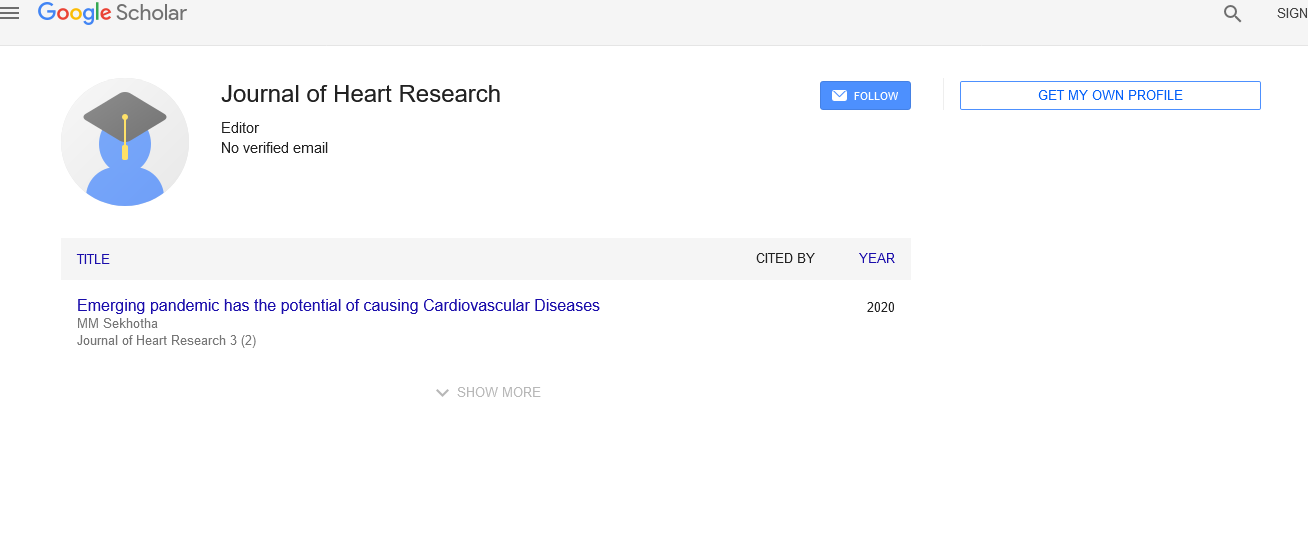
Sign up for email alert when new content gets added: Sign up
Abstract
Psychological status predicts long-term Cerebrovascular Mortality: Findings from a prospective analysis on Aging in a Cohort of Community Elderly in North Tuscany
Author(s): Olivia Curzio, Emilia Bernacca, Serena Ciandri, Bruno Bianchi, Pasquale Pepe, Giuseppe RossiSelf-reported psychological status may have an impact on total and cardiovascular mortality in the elderly. The value of treating psychological difficulties using a range of modalities is an area of considerable interest and intense debate in clinical and research work (Blazer, 2001; Hamer, 2008; Hamer, 2012; Von Kanel, 2008; Carney, 2002).
Overall there is strong evidence that self-perceived health status predicts mortality in the elderly (Mossey, 1982; Wolinsky, 1992; Idler, 1997; Cesari, 2008). In a meta-analysis De Salvo and colleagues found a relationship between worse General Self Rated Health (GSRH) and an increased risk of death (De Salvo, 2006). A study by Idler and Kasl (1995) similarly found that older adults who rated their health as poor were two and a half times as likely to experience a decline in functional ability compared to those with excellent self-rated health. In particular, the dimension of psychological distress has been associated with an increased risk of overall and disease-specific mortality risk in community populations (Carney, 2002, Rasul, 2004). Psychological distress is a risk factor for stroke in humans and worsens the behavioral and neurological outcomes; it can manifest in multiple ways and at different levels of severity; it is a psychological discomfort linked to both everyday stressors and to several other sources of distress (Gradus, 2015) such as bereavement (Ghesquiere, 2014); loneliness (Ng, 2015) is a common subjective complaint among older people and is closely linked to objective social isolation. Objective measures of loneliness have been suggested to be predictive of subsequent functional decline and increased mortality in old age (Holwerda, 2012; Cacioppo, 2002; Kandler, 2007; Routasalo, 2006; Luo, 2012). At the end of the 1980s, the Regional Health Authority of the Italian administrative region of Tuscany launched a project aimed at improving nursing facilities’ assessment, care planning and quality of life in elderly population. The project included the assessment of elderly persons living in Massa and Carrara using a multidimensional geriatric assessment screening tool. When developing the geriatric assessment screening tool, particular importance was placed on ease of use, creating a very userfriendly instrument. The tool can be used as a good source of information by managers and administrators, enabling them to easily identify in a systematic way areas that need change due to poor outcomes and explore potential problems in ways of delivering care, in order to set up corrective quality improvement programs (Curzio, 2017).




